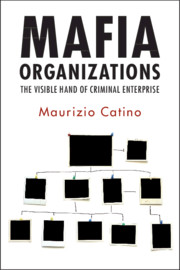Scapegoating
A large cruise ship sinks after hitting some outcropping rocks near the shore. Who is to blame? In the face of negative events – accidents, corporate scandals, crises and bankruptcies – there are two organizational strategies for managing blame. The first is to take full responsibility for the event and to implement adequate corrective measures. The second is to create one or more scapegoats by transferring blame to some of the people directly involved in the event. In this way, the organization can appear blameless and avoid costly remedial interventions. Reappraising the Costa Concordia shipwreck and other well-known cases, Catino analyzes the processes and mechanisms behind creating the 'organizational scapegoat.' In doing so, Catino highlights the limits of explanations centered on guilt and individual solutions to organizational problems, and underlines the need for a different civic epistemology.
- Introduces the novel concept of the 'organizational scapegoat'
- Reappraises famous incidents, including the Costa Concordia shipwreck
- Shows how organizational scapegoating encourages inertia, rather than learning and change
Reviews & endorsements
'Scapegoating is a deep dive into a neglected feature of organizational life: the attribution of responsibility for system failure to individual employees. Professor Catino addresses the causes of scapegoating and the mechanisms by which organizations scapegoat through skillful theory building and vivid case studies. This is a masterpiece of integrative social science with profound lessons not just for organizations scholars, but for organizational leaders as well.' Paul DiMaggio, Professor of Sociology, New York University
'A fascinating, well-executed, deep dive into the often-neglected organizational scapegoat. Catino cuts across levels of analysis and disciplines with great creativity, offering an incisive new account of a regrettably old problem.' William S. Laufer, Julian Aresty Endowed Professor of Legal Studies and Business Ethics, Sociology, and Criminology; Co-Director, The Carol and Lawrence Zicklin Center for Governance and Business Ethics Research, The Wharton School, University of Pennsylvania
'Organizations constantly fail us, often in shocking ways. This fascinating book is necessary reading for anyone who truly wants to limit such failure. By opening our eyes to the organizational dynamics of blame-casting with insightful analysis of political and organizational scandals, we come to appreciate why we repeatedly succumb to our unjust and unproductive for symbolic stigmatization of individuals rather than engage in the painful but essential process of figuring out how our organizations and systems can be improved.' Ezra W. Zuckerman Sivan, Alvin J. Siteman Professor of Entrepreneurship and Strategy, MIT Sloan School of Management
Product details
No date availableAdobe eBook Reader
9781009297172
0 pages
Table of Contents
- Introduction
- 1. Forms and types of scapegoat
- 2. The scapegoat as an instrument of organizational rationality
- 3. Corporate scapegoating: the Costa Concordia accident
- 4. How to spot organizational scapegoats
- 5. Organization and law: inquiry logics and policies of blame
- Conclusions.





